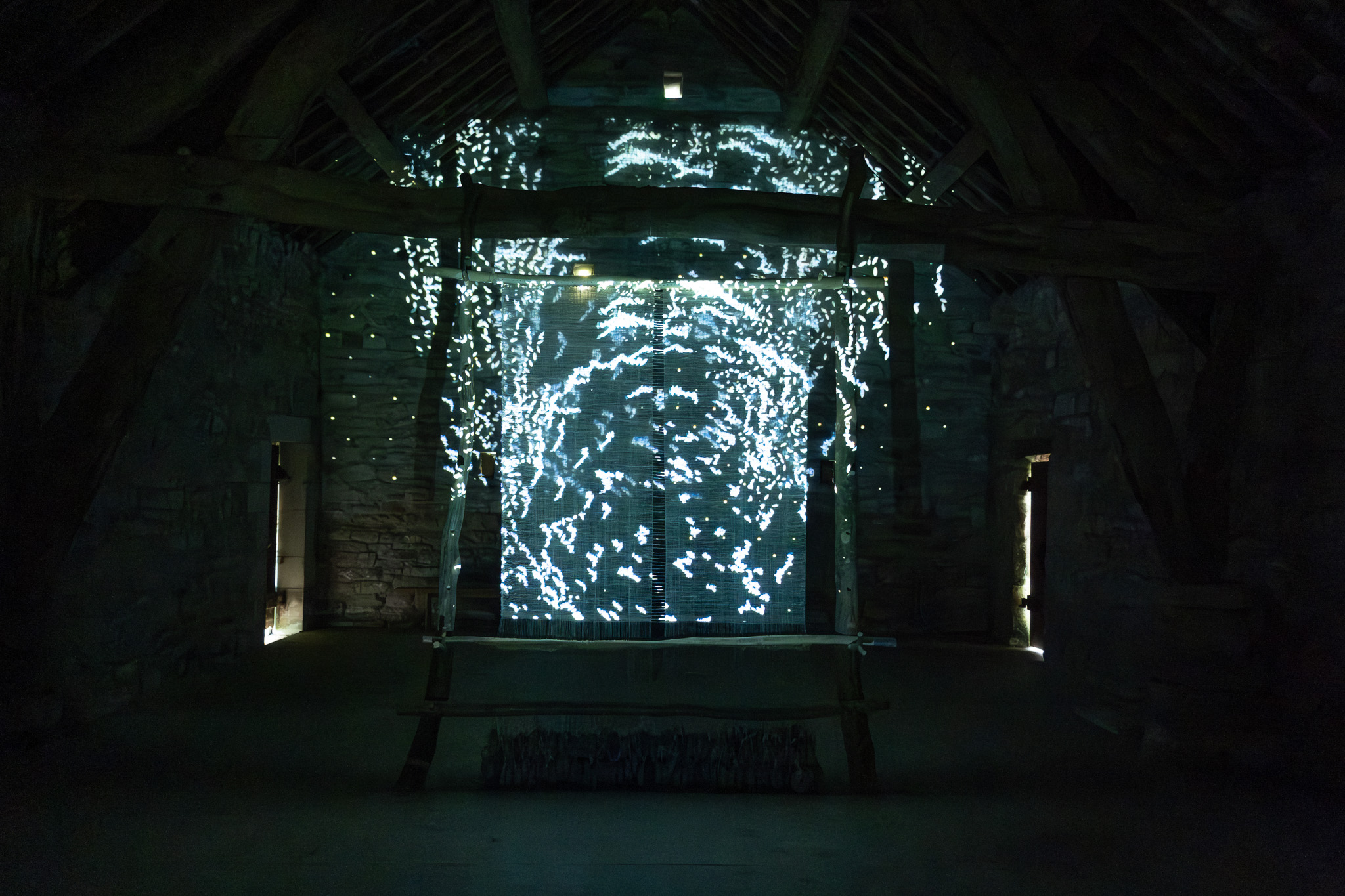
Christine Borland, Projection Cloth, Photo – Jack Bolton
The 2023 British Textile Biennial presented a programme that focused on the issue of sustainability in textile production, asking whether it can ever be a regenerative enterprise, environmentally and socially. Artists from Benin to Bangladesh presented work that takes active steps to address the legacy of colonialism while others look back on its pre-industrial history.
The industrial revolution transformed rural East Lancashire into an engine of fast fashion at the epicentre of a web that stretched across the globe; commandeering human and environmental resources across continents in a vicious cycle of labour, manufacture and trade that persists today and which we now know is unsustainable.
The third edition of the British Textile Biennial (BTB23) traced the routes of fibres and fabrics across continents and centuries to and from the north of England in a series of commissions and exhibitions throughout October in the spaces left behind by the Lancashire textile industry.
From the so-called ‘slave cloth’, spun and woven by hand on the Pennine moors, to the bales of used fast fashion that make their way from British high streets to the markets and toxic mountains of waste in West Africa, BTB23 followed that journey.
Highlights of the 2023 British Textile Biennial included a keynote by Gus Casely-Hayford, installations by The Nest Collective, Victoria Udondian, Tenant of Culture, and Thierry Oussou, a new performance by Common Wealth, new commissions by Christine Borland, Rebecca Chesney, Nick Jordan and Jacob Cartwright, sculpture by Jeremy Hutchison and a major exhibition by South Asian artists from Pakistan, India, Bangladesh and Britain.
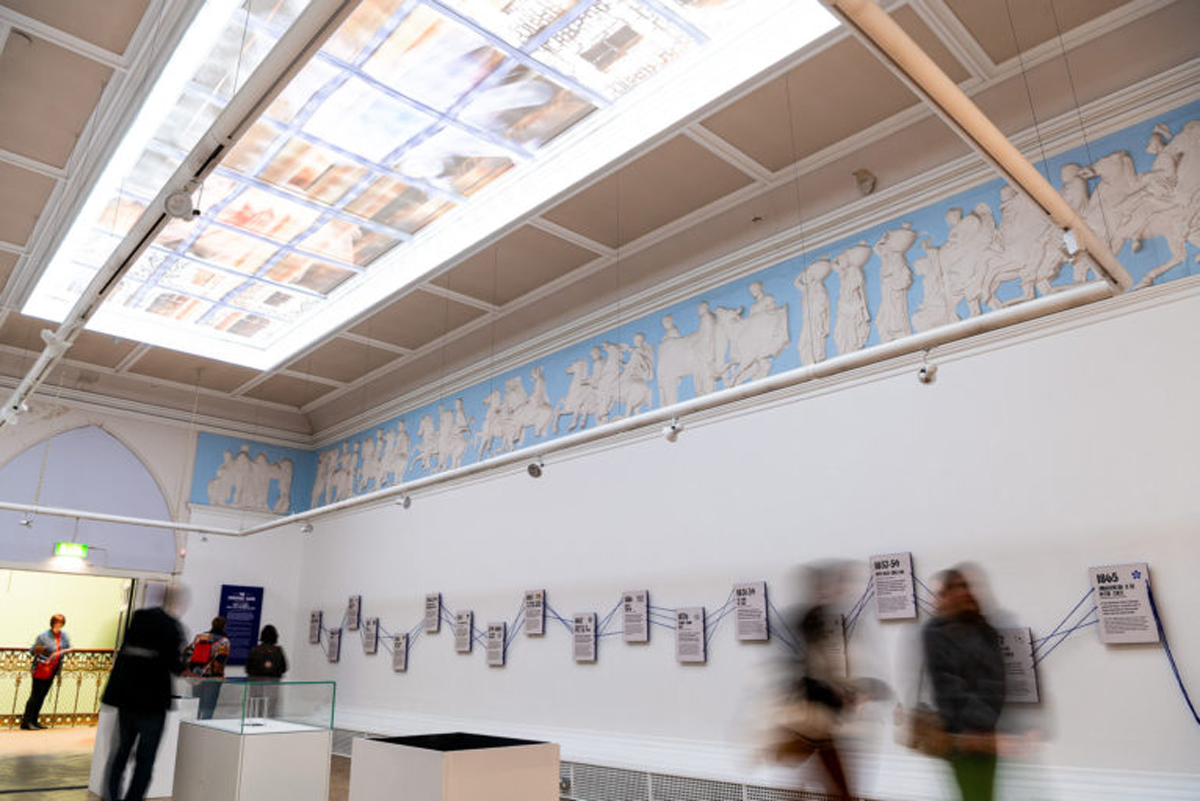
The Penistone Cloth Installation, Photo – Matthew Savage
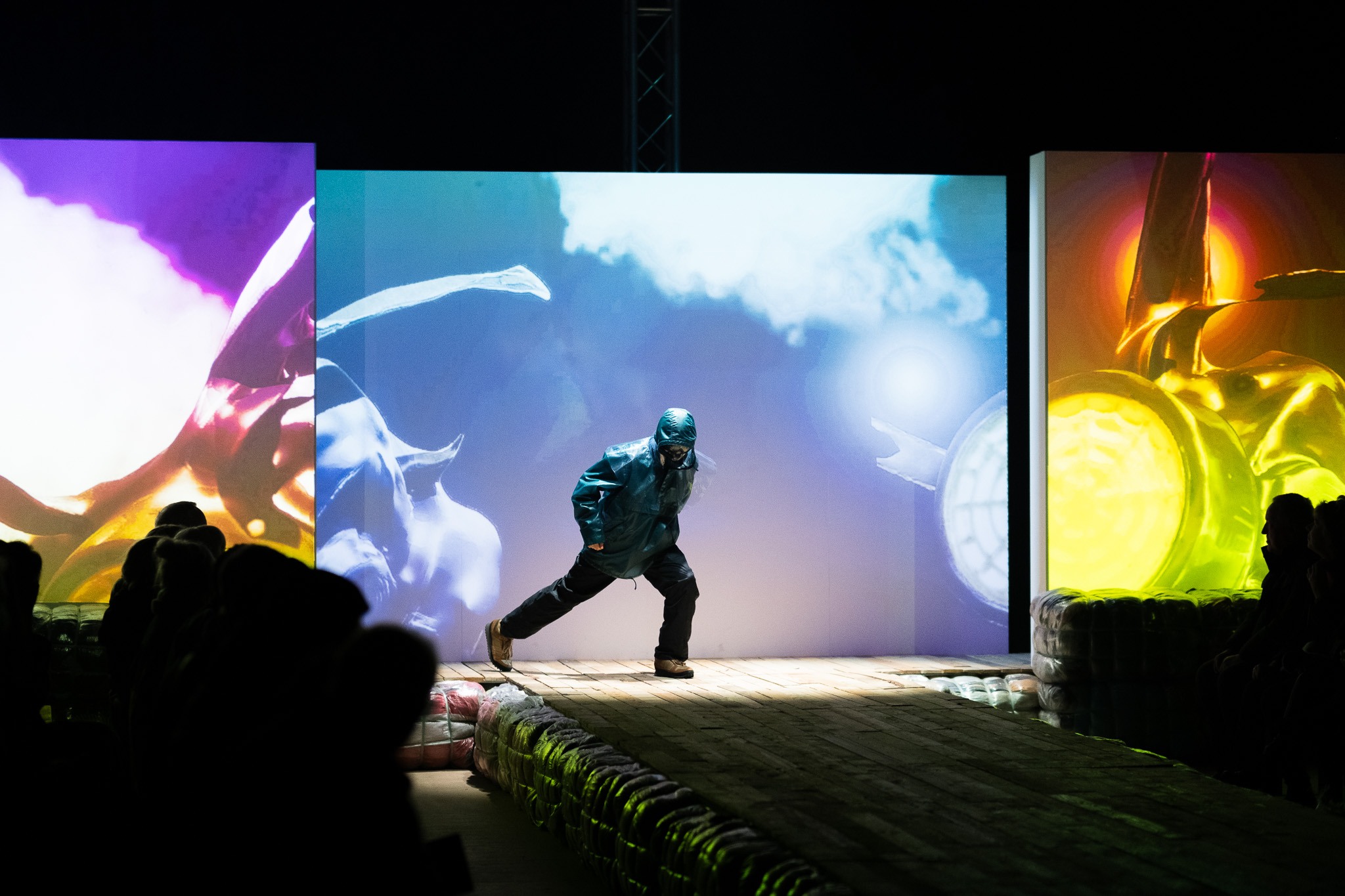
Press
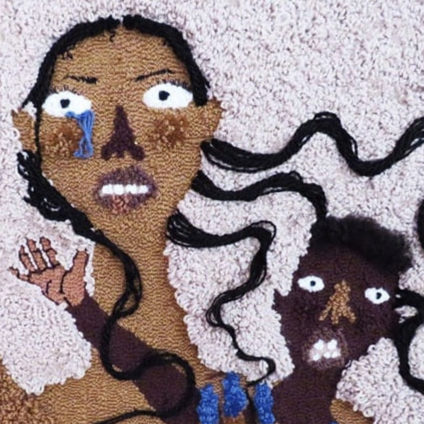
The Observer
Liberty, equality… embroidery: the political power of textile art
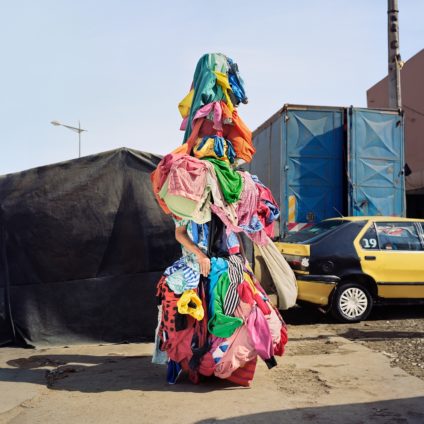
DAZED
Why fast fashion brands are getting a visit from a textile waste zombie
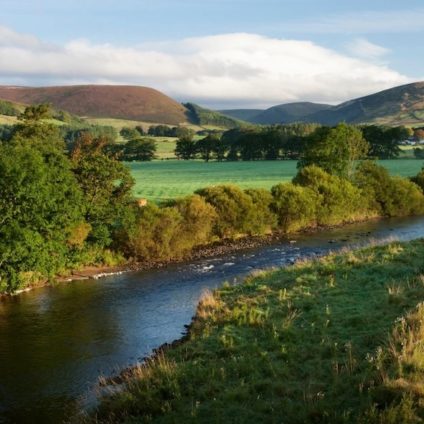
The Telegraph
Why Lancashire is better than Yorkshire
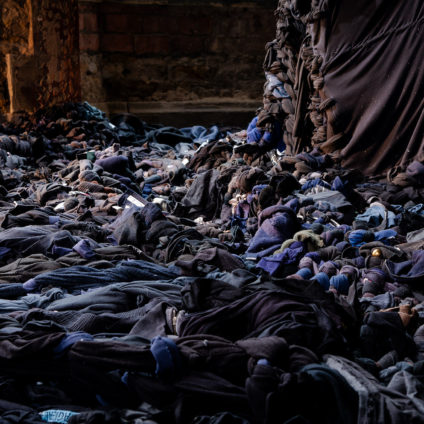
Northern Soul
British Textile Biennial 2023

The Guardian
Looms with a view - a tour of Lancashire’s former mill towns
2023 Events
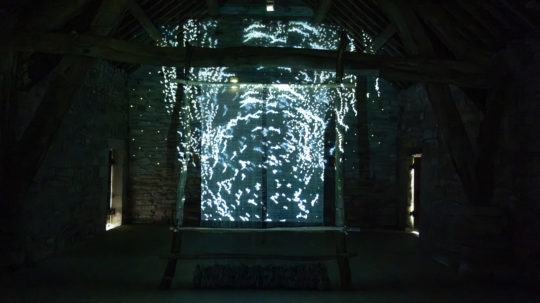
Christine Borland
Projection Cloth
In Christine Borland’s installation, four films were cast onto a Projection Cloth of a material called fustian, which is a mix of linen warp and cotton weft, historically associated with Lancashire.
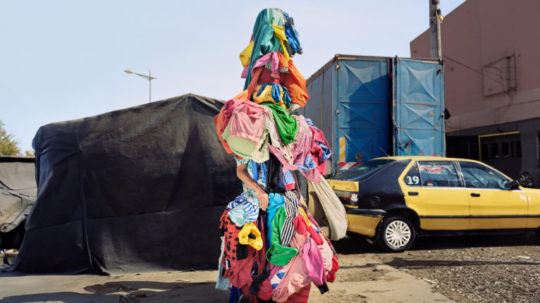
Jeremy Hutchison
Dead White Man
In a series of sculptures, billboards and public workshops, Jeremy Hutchison’s cloth monsters stalked our streets, bringing back the clothes that we have discarded as a shocking reminder of our over-consumption of fashion.
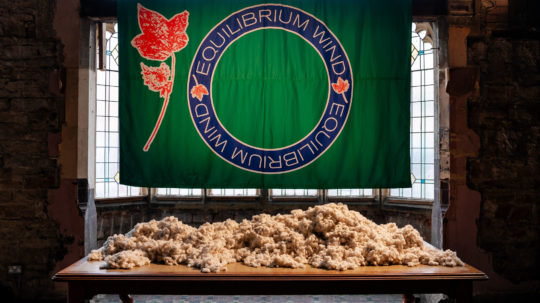
Thierry Oussou
Equilibrium Wind
The Cotton Exchange in Blackburn was built in 1865 to sell raw cotton picked by enslaved African labourers in the plantations of the Caribbean and American colonies to mill owners in Lancashire.
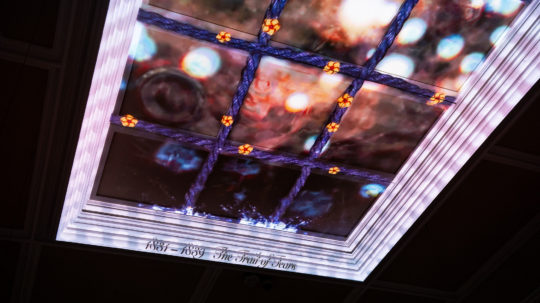
The Penistone Cloth – Textiles and Slavery
From the Pennines to Barbados and Beyond
At first glance it seems quite insignificant; a small, fragile piece of ancient blue cloth. However, this tiny, extraordinary fragment contains threads that stretch across the globe and weaves legacies that we continue to trace and unpick to this day.
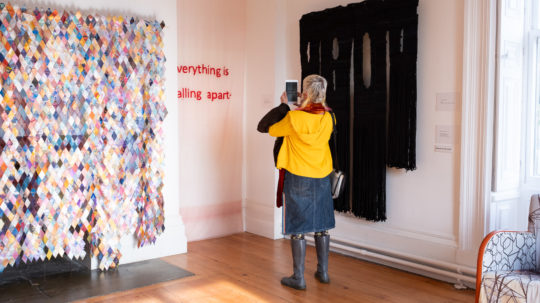
Fragments of Our Time
Curated by Uthra Rajgopal
Fragments of Our Time presented contemporary textile artworks by 17 South Asian artists and artisans from the UK, USA, Pakistan, India, and Bangladesh whose concepts and materials relate to the environment, economies or societies and are displayed throughout the house, itself built for a textile mill owner at the height of Britain’s colonial expansion in India.
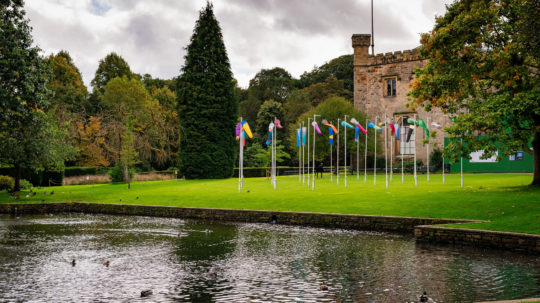
Rebecca Chesney
Conditions at Present
Tents provide shelter in times of crisis or displacement, but they perform a very different role at music festivals where it is more common for cheap tents to be discarded than taken away by their temporary inhabitants.
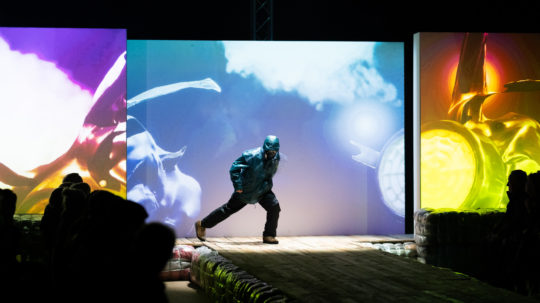
Fast, Fast, Slow
By Common Wealth
Fast, Fast, Slow was a unique performance exploring the complexity of our personal relationships to fashion, fast fashion and waste.
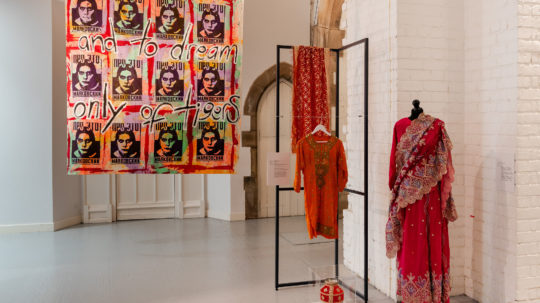
Material Memory
Nothing holds memories better than fabric. Passed down through generations for commemoration or passed on for safe care in dangerous times, it is mobile, mendable and holds memories within its threads.
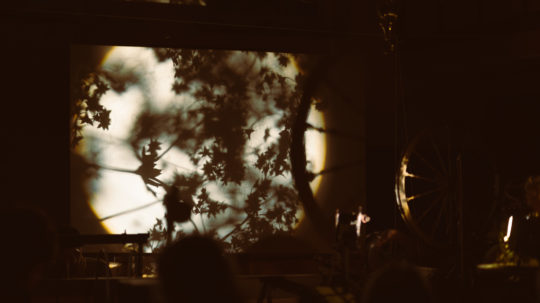
Nick Jordan & Jacob Cartwright
Larksong
Collaborative artists Nick Jordan and Jacob Cartwright presented a new film installation, Larksong, in Goodshaw Chapel, a nonconformist Baptist chapel established by textile workers and farm labourers in 1760 and now owned by English Heritage.
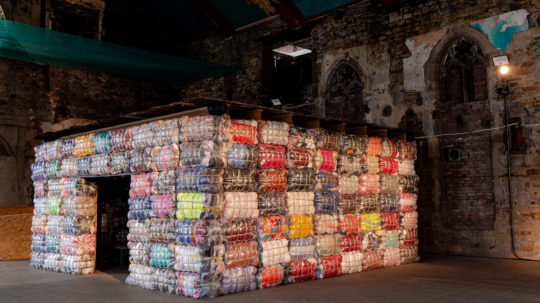
The Nest Collective
Return to Sender
Return to Sender is a film and ambient soundtrack, which is a compilation of sounds recorded at various second-hand clothing markets across Nairobi, Kenya.
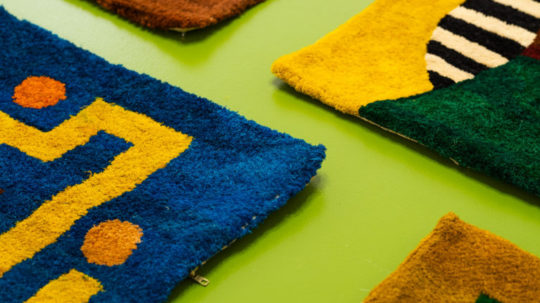
Gaining Ground
Gaining Ground drew on the British Council’s Crafting Futures programme with work by artisans and researchers from countries across the globe, including Bangladesh, the Philippines, the Democratic Republic of Congo, India, Argentina, Nicaragua, Guyana, Brazil and Indonesia – territories where colonialism and extractive capitalist processes have disrupted craft knowledge being passed on to future generations.
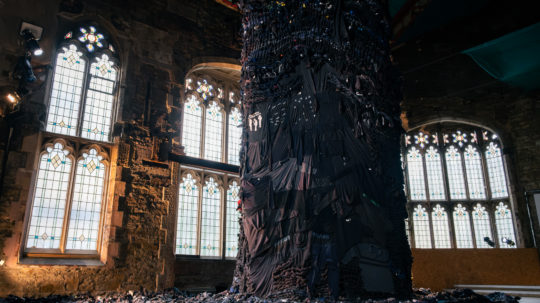
Victoria Udondian
Ofong Ufok
Ofong Ufok was developed by the artist with immigrant communities in New York, notably Stitch Buffalo, a textile centre located near the artist’s studio, that empowers refugee and immigrant women by giving them opportunities to create handcrafted goods and gain independence.
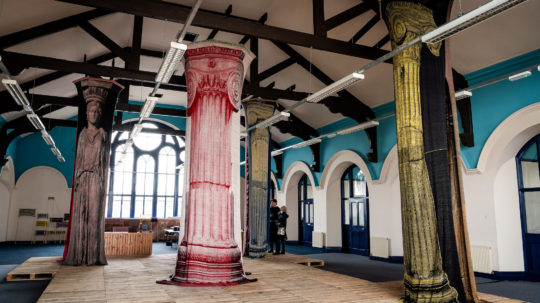
Eva Sajovic in collaboration with Nicola Privato
#end_of_empire
#end_of_empire was an interactive, site specific large scale installation of knitted photographs with incorporated touch sensors and an AI generated musical score.
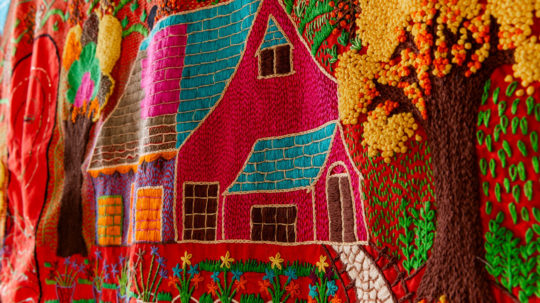
Common Threads
These panels were embroidered by three groups of women situated in Burnley, Pendle and Karachi, Pakistan introduced by renowned textile artist, Alice Kettle, who has a long-standing relationship with the Ra’ana Liaquat Craftsmen’s Colony (RLCC) in Karachi where local women produce beautiful up-cycled products.
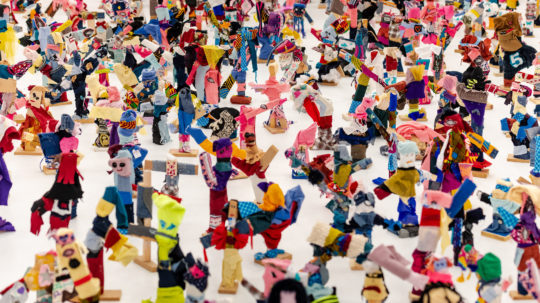
Jeremy Hutchison
Effigies
To accompany Jeremy Hutchison’s installation at the British Textile Biennial, these ‘Effigies’ were made in a series of workshops which took place in schools and community centres across Lancashire.
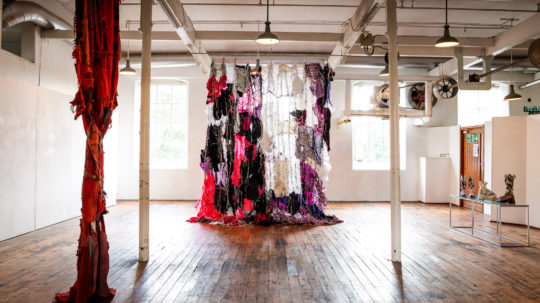
Tenant of Culture
Soft Acid
Deconstructing and repurposing discarded materials from the fashion industry into new sculptures, garments and anthropomorphic forms, Tenant of Culture uses the materials and language of fashion and clothing to explore the vast and problematic waste accumulated through the industry’s various stages of production, distribution and consumption.
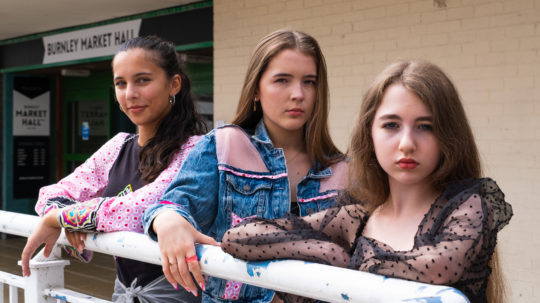
Re: Fashion Challenge 2023
The third annual Re: Fashion Challenge was a collaborative project run by Gawthorpe Textiles Collection, UCLan and the British Textile Biennial.
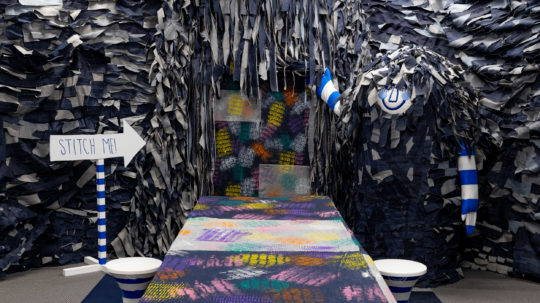
Ibukun Baldwin
Funufactury
This installation was developed by Ibukun Baldwin in collaboration with workers at the Cookson & Clegg factory in Blackburn, a manufacturer reshaping traditional systems with their innovative production lines.
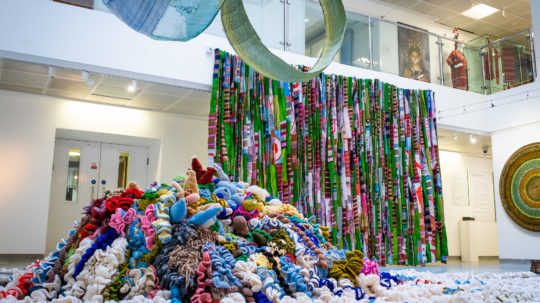
Indigenitude
Curated by Vancci F.C. Wahn
Curated by Vancci F.C. Wahn and featuring 3 textile artists and 4 documentary filmmakers from 3 different Indigenous nations in Taiwan, this exhibition of artworks and film explored Taiwanese indigenous participatory textile practices.
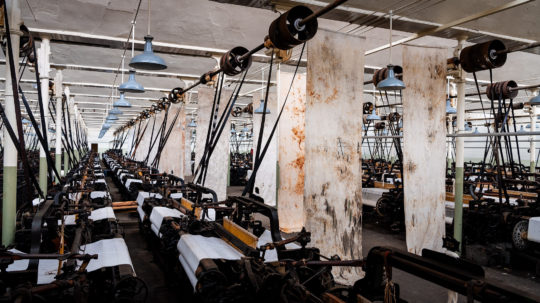
Litmus
Environmental Legacies of Cotton
LITMUS: Environmental Legacies of Cotton brought together a series of large-scale textile pieces by artist Natalie Linney with interdisciplinary research from the University of Manchester.
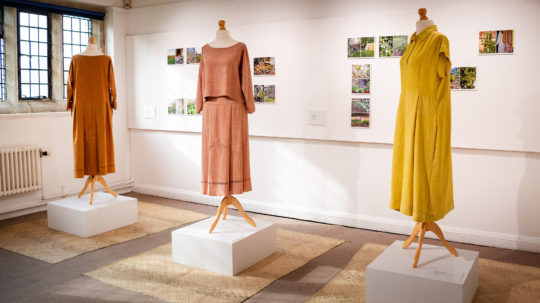
Mila Burcikova
Life in Clothes
What would fashion look like if it developed alongside natural seasons rather than the market driven seasons of the fashion calendar?
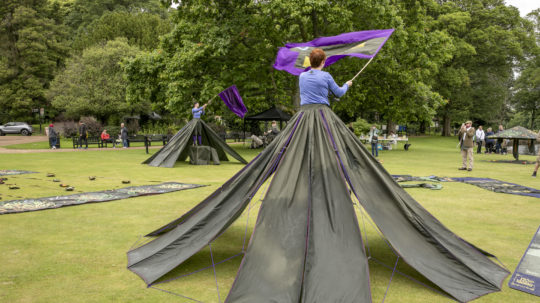
Artist A & Artist B
The Surplus Badge
The Surplus Badge was developed in three stages: workshops with East Lancashire Guides, Brownies and Rainbows, a participatory picnic filmed on the lawn in front of Towneley Hall and the installation including the film and artworks, exhibited in Towneley’s Family Dining Room for the British Textiles Biennial.
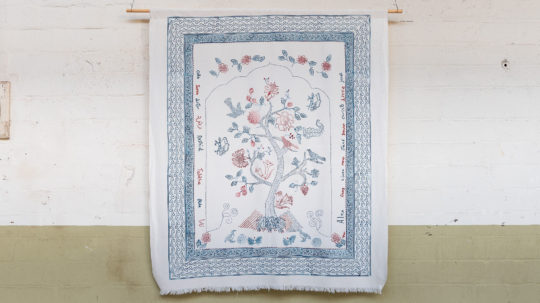
Madhu
Threadbare Narratives
Threadbare Narratives alluded to the dark histories and myths surrounding cotton and the movement of knowledge, raw materials and people that underpin the history of the Lancashire cotton industry.
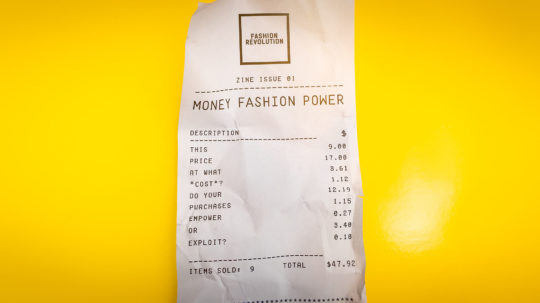
Fashion Revolution
How to be a Fashion Revolutionary
Fashion Revolution is the world’s largest fashion activism movement, mobilising citizens, brands and policymakers through research, education and advocacy.
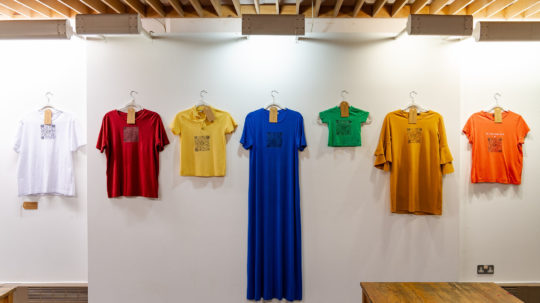
Ergon Theatre
Threads
Originally commissioned by The Lowry and created by one of the UKs leading climate theatre companies Ergon Theatre, Threads is a gripping and poetic audio piece that immerses listeners in the fascinating journey of a simple t-shirt, from its creation to delivery. This captivating narrative unfolds through Charley, an everyday online shopper, and her AI shopping assistant, Wilfred.